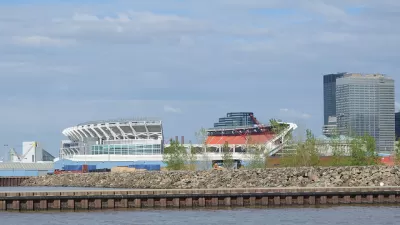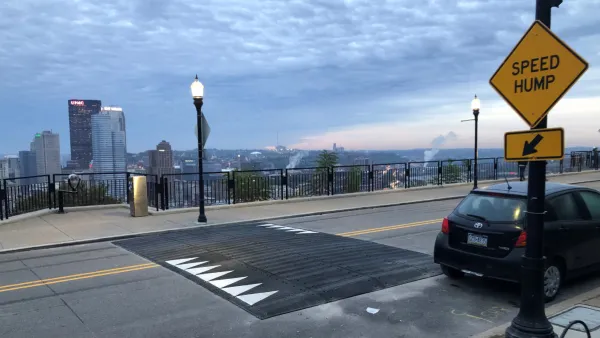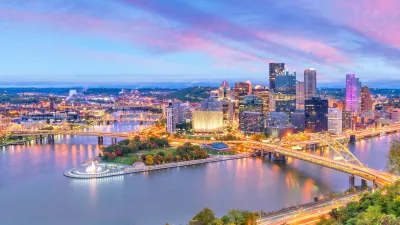A garden in Pittsburgh has become the model for a movement to combine environmental reclamation with economic development.
The long-abandoned coal mine where the Pittsburgh Botanic Garden now sits was not, at first, considered a high priority for rehabilitation. Though plagued by high concentrations of aluminum in its central pond, the site didn't meet the criteria to be classified as "brownfield."
But now the garden is one beneficiary of a new $30 million state grant program that is taking a different approach to environmental remediation: targeting sites that have the greatest potential for economic development, rather than the greatest ecological need. Where reclamation programs have traditionally sought to "simply restore damaged land to its original condition and eliminate public health hazards," a 2016 Congressional authorization allowed states like Pennsylvania to put clean-up funds toward community development projects on the site.
The botanic garden, which serves 25,000 visitors a year, is one of 14 pilot projects throughout Pennsylvania to receive this funding. An underground treatment system to de-acidify the pond has already been implemented, and the grant monies will be used to create new curated gardens and recreational areas for public access.
FULL STORY: Where coal was once mined, a garden now thrives

Planetizen Federal Action Tracker
A weekly monitor of how Trump’s orders and actions are impacting planners and planning in America.

Map: Where Senate Republicans Want to Sell Your Public Lands
For public land advocates, the Senate Republicans’ proposal to sell millions of acres of public land in the West is “the biggest fight of their careers.”

Restaurant Patios Were a Pandemic Win — Why Were They so Hard to Keep?
Social distancing requirements and changes in travel patterns prompted cities to pilot new uses for street and sidewalk space. Then it got complicated.

Platform Pilsner: Vancouver Transit Agency Releases... a Beer?
TransLink will receive a portion of every sale of the four-pack.

Toronto Weighs Cheaper Transit, Parking Hikes for Major Events
Special event rates would take effect during large festivals, sports games and concerts to ‘discourage driving, manage congestion and free up space for transit.”

Berlin to Consider Car-Free Zone Larger Than Manhattan
The area bound by the 22-mile Ringbahn would still allow 12 uses of a private automobile per year per person, and several other exemptions.
Urban Design for Planners 1: Software Tools
This six-course series explores essential urban design concepts using open source software and equips planners with the tools they need to participate fully in the urban design process.
Planning for Universal Design
Learn the tools for implementing Universal Design in planning regulations.
Heyer Gruel & Associates PA
JM Goldson LLC
Custer County Colorado
City of Camden Redevelopment Agency
City of Astoria
Transportation Research & Education Center (TREC) at Portland State University
Camden Redevelopment Agency
City of Claremont
Municipality of Princeton (NJ)





























